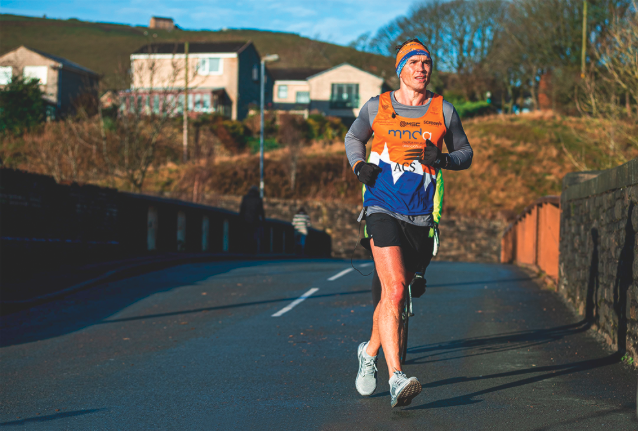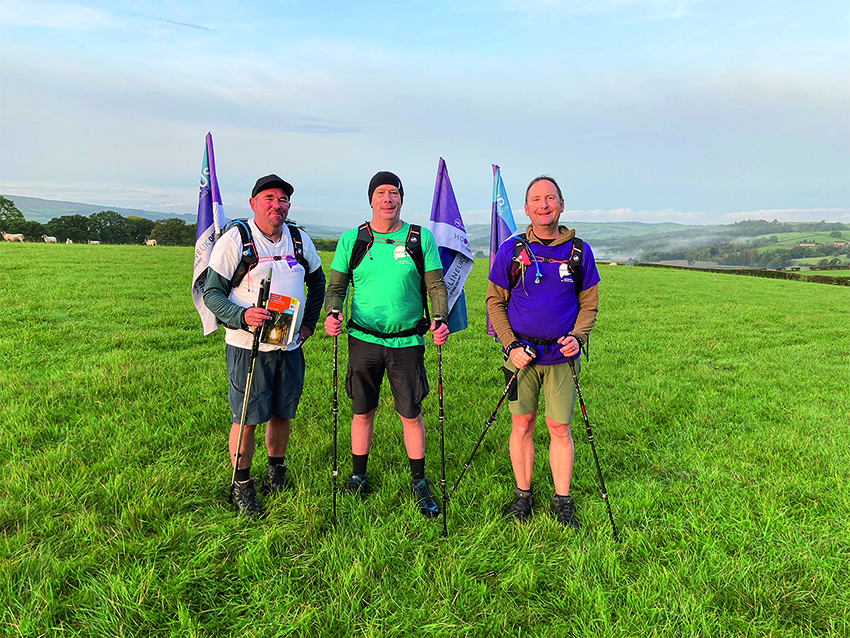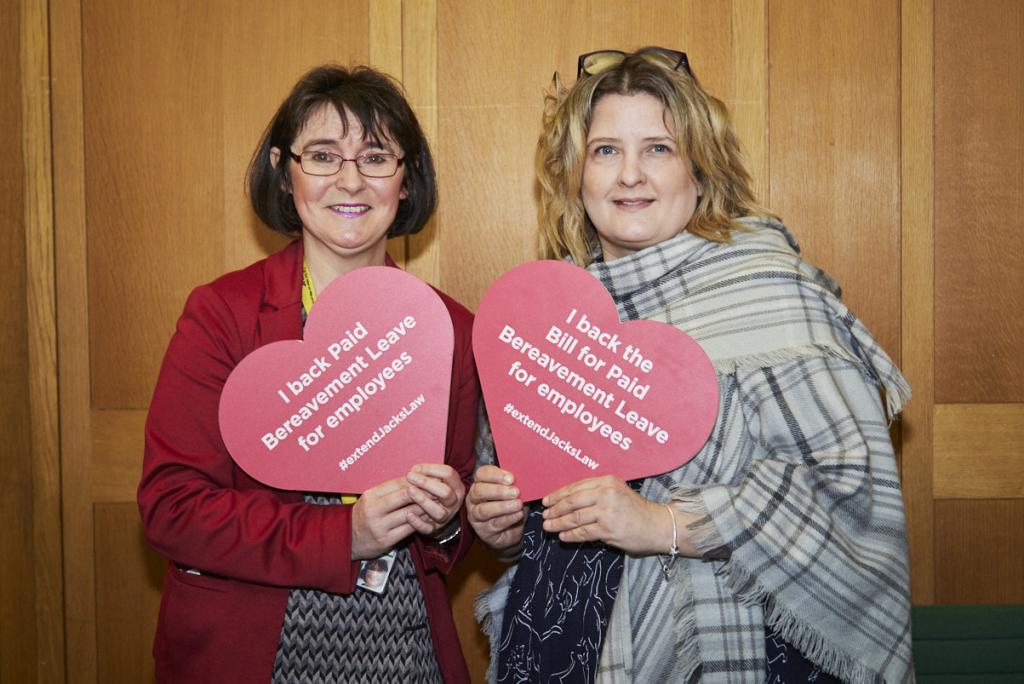Enduring love
When faced with the worst of times, we each find different ways to get through. Heather Bishop meets three people whose love for their best friend or family member inspired them to do something truly incredible in their name
“IT HELPED ME TO BE DOING SOMETHING PRACTICAL FOR MY MATE”
When Kevin Sinfield’s friend and former Leeds Rhinos rugby teammate Rob Burrow was diagnosed with motor neurone disease, he was determined to do something to help.

We both eventually retired from playing. I became director of rugby at the Rhinos and Rob was the academy coach. In 2019, a few things were happening with Rob that didn’t seem right. He had a couple of bad shoulder injuries, but after noticing some issues with his speech, he went for tests.
In December, I was heading to Scotland for a charity bike ride when I got a text from Rob telling me he’d been diagnosed with motor neurone disease (MND). I Googled it, which was the worst thing I could have done as the statistics were devastating – more than half of people die within two years of diagnosis; a third die within the first 12 months.
I sent Rob a message to tell him I was thinking about him and was there for him. He’s quite a private person, but he decided pretty quickly that he wanted to be honest about his diagnosis. I knew it was difficult for him to open himself and his family up to the media, but it was brave and courageous and I was proud of him. It inspired so many people and raised so much awareness around MND.
I tried to put myself in his shoes and think, if it were me, what would I need?
I decided the best thing was to take care of his family financially. So the club, some former players and I got together to try to raise money and awareness.
Covid delayed our plans, but in December 2020, I put together the ‘7 in 7’ challenge. A team of six of us were going to run seven marathons in seven days to raise £77,000. None of us envisaged the support we’d get from the media and the public and by the end of the first day, we’d already smashed our target.
It was gruelling, but it helped me to be doing something practical to help my mate. In the end, we raised £2.7 million. Once we’d helped out Rob, most of the funds went to the MND Association.
We did the ‘Extra Mile’ challenge in November 2021, running 101 miles in 24 hours from the Leicester Tigers stadium to Headingley Rugby stadium. Rob’s wife Lindsey and his daughter Macey did the last leg with us and this time we raised £2.5 million, split between the MND Association and Leeds Hospital Trust.
Rob is inspirational and our friendship hasn’t changed. He’s still the same funny Rob, always smiling. I’ll continue to show support and am planning a third challenge later this year.
Rob is humbled by what has been done for him. He says he’d do the same and I know he would. I’m just trying to be a mate. If something happened to your best friend, you’d be there. It’s not an option.”
To donate go to giveasyoulive.com/fundraising/kevin-sinfields-the-extra-mile-challenge or to take on your own challenge go to mndassociation.org/extramile
“I VOWED THAT SOMETHING POSITIVE HAD TO COME OUT OF EMILY’S DEATH”
When Tim Owen lost his daughter to suicide, he found comfort and support with two other dads who knew exactly what he was going through.

“My family’s world turned upside down when, in March 2020, my beautiful daughter Emily tried to take her own life. She died five days later in the hospital where she was born 19 years before. It was the thought of life under lockdown and the years of struggle before a late diagnosis of autism.
Because of lockdown, there were only six people at her funeral. ‘Tim, no one will remember Em in a year’s time,’ my wife said in tears. I had to do something.
A month after Emily died, my eldest daughter read about another girl called Beth from Manchester who had taken her life around the same time as Emily. She connected on social media with Beth’s dad, Mike, and suggested we got in touch. We exchanged texts at first, then started chatting on the phone. Whenever we felt down, we phoned each other and that support was massively helpful.
After Emily’s death, I found a note from her and two things stood out – don’t be ashamed and let others learn from what has happened to me. It reinforced the idea of doing something positive in Emily’s name. I also wanted to show my other three kids that we had to keep going. Mike felt the same and we started to talk about some sort of challenge.
Mike had connected with another dad through a suicide prevention charity for young people called Papyrus. Andy’s daughter Sophie had died by suicide a couple of years before and he’d already run a marathon to raise money. We met for the first time virtually in May 2021 and that’s when 3 Dads Walking was born. We plotted out the 300-mile route between our homes – Andy in Cumbria, Mike in Manchester and me in Norfolk.
When we met in person, we were three kindred spirits. None of us were ashamed of what our girls had done but we were all shocked that suicide was the biggest killer of under 35s and that 200 school children took their lives every year. We aimed to raise awareness and £3,000 each. Andy got in touch with a BBC reporter to see if she might cover the walk. A couple of weeks later, our interview was on BBC Breakfast and the donations rolled in. A week before the walk, we’d already raised £58,000.
I was on the train going up to Andy’s to start the walk when Papyrus contacted us to say they’d received a £10,000 donation from Daniel Craig. When we started
the walk on 9 October, live on TV, the donations went crazy again, and at the end of day one, we were at £200,000.
The main aim of our walk was to raise awareness about suicide and within 500m of the start, a woman came up to us with an order of service. Her daughter had died by suicide two months before and Mike promised to carry it all the way to Norfolk. All along the route people who had been affected by suicide joined us. One woman had lost her dad in 1953 when she was three. It was so humbling to hear their stories and felt like we were helping other people by doing this.
We walked 12 hours for 15 days. People beeped their horns and put money in our bucket. But we were determined it wasn’t going to end there. We thought, if all these young people are losing their lives to suicide, then why aren’t we doing more about it? Now we’re campaigning to the Government for suicide prevention to be on the PSHE curriculum in schools. We’ve got a syllabus that talks about drugs, knife crime and extremism but not suicide. If it’s done sensitively, we believe we can give our children the tools to cope.
3 Dads Walking is a way of keeping Emily’s memory alive and trying to stop this happening to another family. Thanks to the £700,000 we’ve raised, Papyrus is recruiting more professionals so they can open their HOPELINE 24-7. It feels like we’ve done something positive out of unimaginable tragedy.”
For practical, confidential suicide prevention help and advice contact the Papyrus HOPELINEUK on 0800 068 4141, text 07860 039967 or email pat@papyrus-uk.org
“MY WAY OF COPING WAS BY MAKING A CHANGE FOR JACK”
When her son died, Lucy Herd wanted to create a lasting legacy in his memory.

“My life changed forever one day in August 2010. My 23-month-old son Jack was drawing, when I took a phone call. I turned around a few minutes later and noticed the back doors were open and Jack and the dog were missing. When I ran outside and saw the dog sat by the pond, I just knew Jack was in the water. I tried to resuscitate him, but there was nothing I could do.
My heart broke into a million pieces; the pain was like nothing I could ever have imagined. Jack was such a happy little boy who loved animals and would blow kisses and say hello to everyone.
There were days I didn’t want to get out of bed, but I had to carry on for the sake of my other children – Josh, 13, and Elle, nine. I needed people around me, but my immediate family members were only able to take three days of paid leave from their jobs – one of which had to be the funeral. The same thing happened to relatives and friends who lived over 300 miles away in Berkshire. They were all in shock, but they had to return to work – some within 24 hours. If they wanted more time to grieve, they had to take it as holiday or unpaid sick leave. It felt inhumane and I was shocked that there was no legal requirement for employers. Most people had sick leave, maternity leave and holiday in their contract – why not bereavement leave?
Twelve weeks after Jack died, I arranged a meeting with my local MP.
‘I want to create a law,’ I told him. ‘How do I do it?’
‘With great difficulty,’ he told me honestly.
I needed 100,000 signatures on a petition for it to be debated in Parliament. These were the days before social media and petition websites.
I did everything I could, from standing in the street with a clipboard collecting signatures to doing interviews with the media. Twitter had just started, so I shared my story on there and it quickly gained momentum. People shared my petition and contacted me with their own experiences.
One man told me how his wife had died at 5pm and he was called to a sales meeting at 8am the next day by his employer. I felt like I had to be a voice for all those people who couldn’t take time to grieve for a loved one.
For me personally, there was a sense that I had to make some good come out of such a horrendous situation. I had to create something positive and make
a change in Jack’s memory. I felt like he was walking with me every step of the way, holding my hand and telling me, ‘Mummy, you can do this.’ It gave me something to focus on and helped me to move forwards.
Within two years, I’d reached 100,000 signatures, and in 2012, I sat in the gallery as my petition was debated in Parliament. To hear David Cameron talk about Jack was just magical.
I was constantly being warned about how long it takes to create a new law, but I always believed that it would happen. It took eight more years and countless meetings and bills. There were times that doors were closed on me and things went quiet, but I refused to give up.
In January 2020, I finally succeeded – parental bereavement leave was going to become law. Parents who suffered the devastating loss of a child would be entitled to a minimum of two weeks’ statutory leave. It was only when I was invited up to London for a meeting that I was told it was going to be called Jack’s Law. I had no idea and when
I heard that, I cried. The little boy that I loved and missed was going to be remembered forever – this law was his legacy and he was going to help so many people.
It was wonderful, but I refused to stop there. Now I’m hoping to extend Jack’s Law to include all immediate family members. What happened to Jack has shaped my whole life. I’m now a grief recovery specialist helping other people with their own grief and loss, and when I think of Jack, my eyes light up and I smile. I’ll always love and miss him, but I can think about him and talk about him without pain. Hopefully, everyone will know about Jack’s Law – I’m so proud to be his mum.”

Leave a Reply
Please login or register to leave a comment.